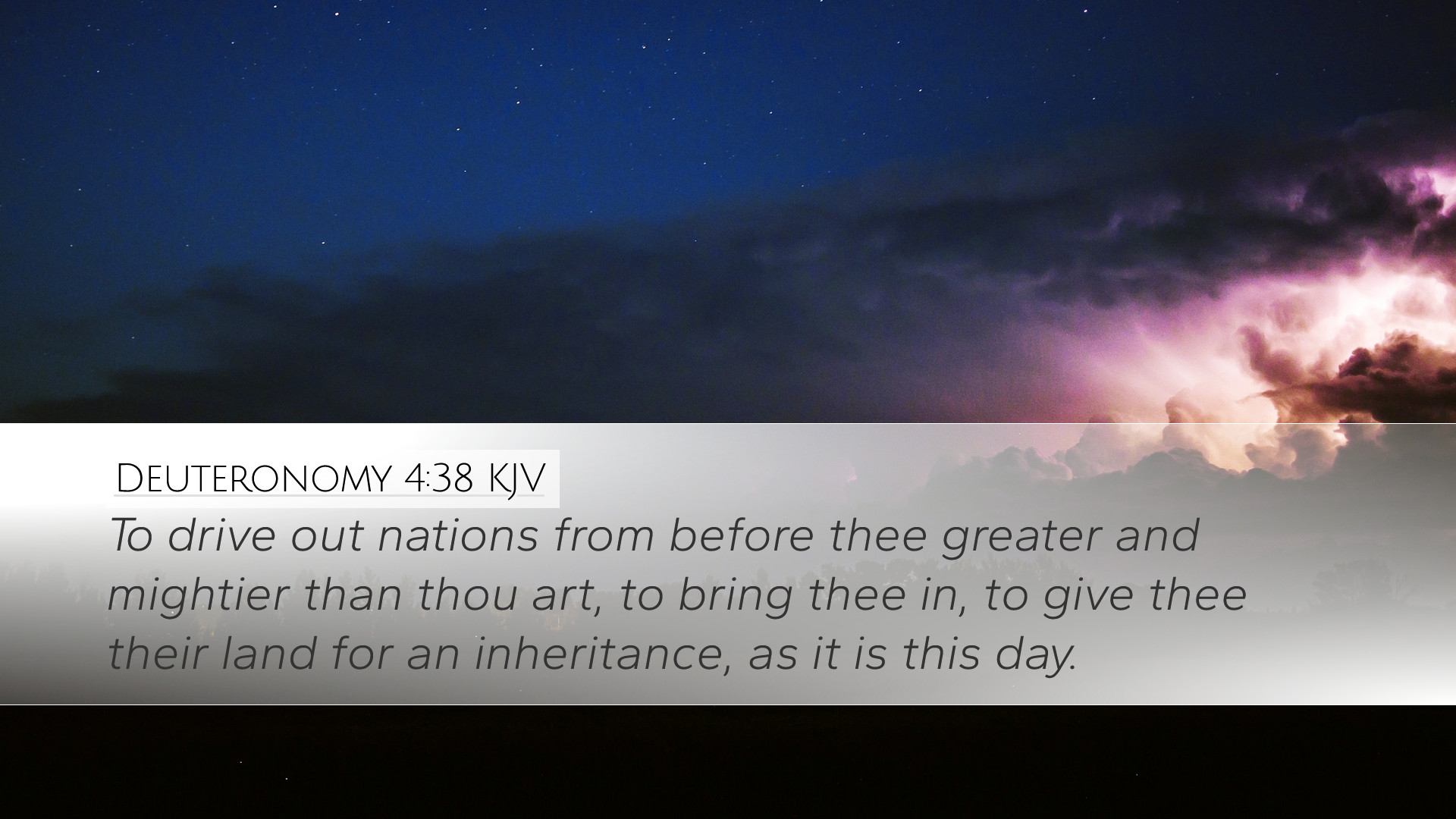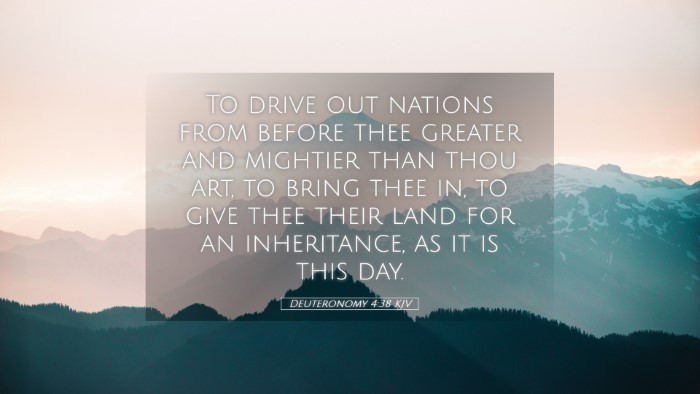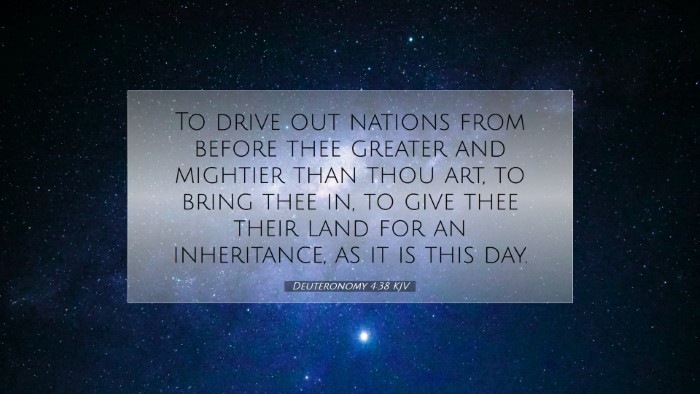Commentary on Deuteronomy 4:38
Deuteronomy 4:38 states:
"To drive out nations from before you greater and mightier than you; to bring you in, to give you their land for an inheritance, as it is this day."
This verse encapsulates a significant moment in the historical narrative of Israel, focusing on divine sovereignty and the fulfillment of God’s promises to His people. Below, we explore insights from various public domain commentaries to provide a comprehensive understanding of this verse.
Historical Context
As background to this chapter, it is vital to note that Moses addresses the Israelites just prior to their entrance into the Promised Land. This period is critical not only for the Israelites but also for understanding God’s redemptive plan throughout history.
The Divine Purpose of God's Action
In Deuteronomy 4:38, the text highlights several key aspects of God's purposes:
- Driving Out Nations: The mention of nations greater and mightier signifies the true power of God, who acts against formidable adversaries. As Matthew Henry notes, this illustrates God’s sovereignty and His ability to fulfill promises against overwhelming odds.
- Inheritance: The act of bringing in the Israelites to occupy the land emphasizes the themes of covenant and inheritance. Clarke elaborates on the concept of inheritance as not just land possession but as a gift signifying God’s faithfulness to His covenant people.
Theological Insights
This verse speaks volumes about the character of God. Both Henry and Barnes emphasize God's role as a warrior who fights on behalf of His people. This can be seen as a foreshadowing of spiritual warfare, suggesting that God empowers His people to conquer sin and evil.
The Assurance of God’s Support
Barnes points out that the Israelites were not entering the land by their strength but by divine intervention. This truth is a profound lesson for Christians today: all victories in life come through reliance on God's power rather than human effort.
Grace and Mercy
Although the land was occupied by nations more powerful than Israel, the grace of God provided a pathway for their removal and Israel's settlement. Adam Clarke highlights that this act of grace should evoke gratitude and a sense of responsibility among the Israelites—a theme that resonates deeply with contemporary believers who understand grace as unmerited favor.
Application for Today
The narrative of the Israelites reclaiming their land holds rich implications for modern-day believers:
- Faith in God’s Promises: Just as God was faithful in His promises to Israel, believers are encouraged to trust in God’s promises today. The God's faithfulness demonstrated in Israel’s journey serves as a reminder of His ongoing commitment to His people.
- The Call to Conquer: Spiritually, Christians are called to conquer areas of sin and despair in their lives, drawing strength from the assistance God provides. This venture into ‘capturing’ spiritual territory is echoed in the exhortations found throughout the New Testament.
- Gratitude for Salvation: Reflecting on God's grace, believers are prompted to live lives marked by thankfulness and engaging in the mission to share the gospel, much like the Israelites were to be witnesses of God’s greatness.
Conclusion
Deuteronomy 4:38 serves as a powerful reminder of God's sovereignty, grace, and unwavering commitment to His people. It encourages believers to recognize the magnitude of divine support in their endeavors, urging them to align their efforts with God's will, trusting in His promise of victory.
Pastors, students, theologians, and scholars can glean much from this verse, enriching their understanding of God's character and His enduring faithfulness across generations.


